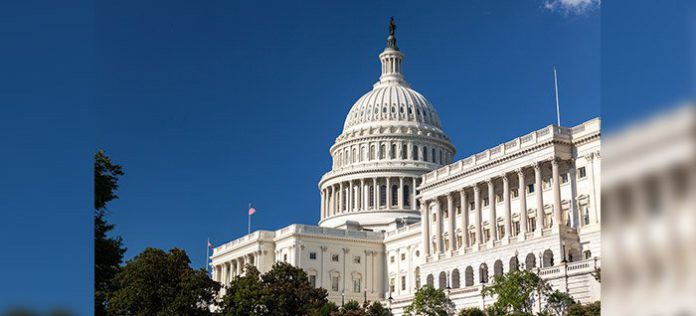
Colorado’s undocumented essential workers might have a speedy option for obtaining lawful permanent residency if Congress passes a bill looking to reward the estimated 5 million individuals in that category across the country.
“The Citizenship for Essential Workers Act provides undocumented essential workers with a fast, accessible, and secure path to citizenship, beginning with immediate adjustment of status to legal permanent resident. This legislation is a critical part of a just and inclusive COVID-19 recovery,” the website for bill sponsor Rep. Joaquin Castro (D-TX) states.
Colorado Rep. Diana DeGette and Sen. John Hickenlooper are also signed on as cosponsors to the legislation, according to a joint press release written by the Colorado Immigrant Rights Coalition, a statewide coalition of immigrant advocates.
CIRC noted in the press release that undocumented workers risk their health when working in essential services such as grocery stores, farms, hospitals, kitchens and more. “Yet the bitter truth remains that despite their incredible contributions, they are not afforded the same protections, opportunities, or security that their fellow neighbors are,” the CIRC release states.
The proposed bill would create a pathway to citizenship for roughly 7.5 million undocumented immigrants living in and contributing to the U.S. This includes millions of undocumented essential workers and their more “than two million undocumented family members covered by the bill,” according to FWD.us, a bipartisan political advocacy organization for reform.
Immigrant essential workers and families are at high risk for exposure to COVID-19 and also high risk for death, according to a fact sheet on Castro’s website, which cites data from the U.S. National Library of Medicine at the National Institute of Health, research organizations and a joint letter from health professionals, professors in economics, public policy, the Colorado Fiscal Institute and Georgetown Center on Poverty to fiscal leaders in Washington, D.C., urging for a pathway to citizenship for undocumented workers as a tool for strengthening worker protections, creating jobs and escaping poverty.
In order to achieve legal permanent resident status under the act, an undocumented worker would need to be working in a select number of sectors such as health care, food, hotels and hospitality, domestic work, childcare, laundry services, disaster recovery, manufacturing, construction, emergency response, sanitation and others determined by the state and local governments and the Department of Homeland Security. The bill would also offer residency to undocumented workers who were employed in essential industries but lost employment because of COVID-19, according to the fact sheet. Also, the relatives of essential workers who died due to COVID-19 would be offered residency.
Despite easing the pathway to citizenship, the bill still keeps some bars to obtaining residency, said Jessica Martinez Vasquez, communications director for Colorado People’s Action. For instance, low-level, old or minor infractions could exclude an individual from receiving residency by way of the bill.
“In effect, carve-outs like these mean non-citizens who commit even trivial offenses are punished twice: once by the criminal legal system and then again by exclusion from the path to citizenship,” said Rochelle Galindo, political and organizing director of Colorado People’s Action, in a statement.
Jennifer Piper, the organizing director with the American Friends Service Committee in Colorado, said that while the group is encouraged by provisions in the bill, a concern was the blocked access for undocumented workers to obtain residency.
Piper also mentioned that members of her organization had expressed appreciation for the straightforwardness of the proposed bill’s access to residency, but when residency or citizenship require consistent work, the seasonal aspect of some industries makes it hard for workers to meet requirements.
In December 2020, the Center for American Progress, an independent nonpartisan policy institute, released a report claiming that undocumented immigrants make up roughly 3.2% of the American population and 4.4% of the country’s workforce, and at the time, more than 7 million undocumented immigrants were working in the U.S.
“The most important thing the next administration and Congress can do is to get the spread of the coronavirus under control and create a path for the country to recover economically from the pandemic,” the CAP website states. “Legalizing undocumented immigrants in the labor force is a tool to make this happen.”
According to CAP’s report, undocumented immigrants are employed in critical infrastructure work on a wide range of jobs, with an estimated 1.7 million working in the nation’s food supply chain, 236,000 working in health care and 188,000 working in health care environments as food servers, custodians and administrative workers. Colorado has approximately 78,600 undocumented workers in these areas, according to CAP estimates.
Generally, across the U.S., undocumented workers make up large percentages of janitors and building cleaners, carpenters, agricultural workers, cashiers, waiters and waitresses, material movers, truck drivers, production workers and equipment operators, packagers and food preparation workers.
When looking at states, undocumented immigrants make up larger shares of the workforce than they do the total population, according to CAP. California and Texas have the largest undocumented workforce numbers, with approximately 1.4 and 1.2 million workers each.
CAP reports that undocumented immigrants make up a large number of workers in certain industries, including construction labor, where undocumented workers make up 23% of the workforce and maids and housekeeping cleaners, who make up a 22% share of the workers industry with over .
Vasquez noted that while this bill will assist and support approximately 5 million undocumented immigrants, there are still approximately 11 million total undocumented immigrants in the country.
“The [U.S. Bureau of Labor Statistics] projects that the United States will add 1.2 million new home health and personal care aides between now and 2029,” the CPA website states. It further notes that the BLS projects large additions of fast-food workers, restaurant cooks, freight and stock laborers, landscaping and groundskeeping workers and janitors — “all occupations with already large numbers of undocumented workers.”

